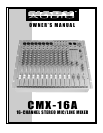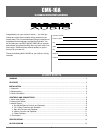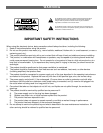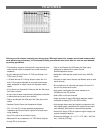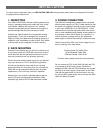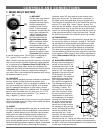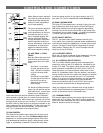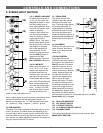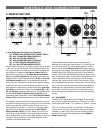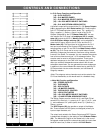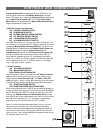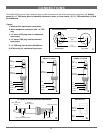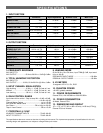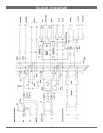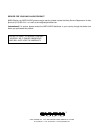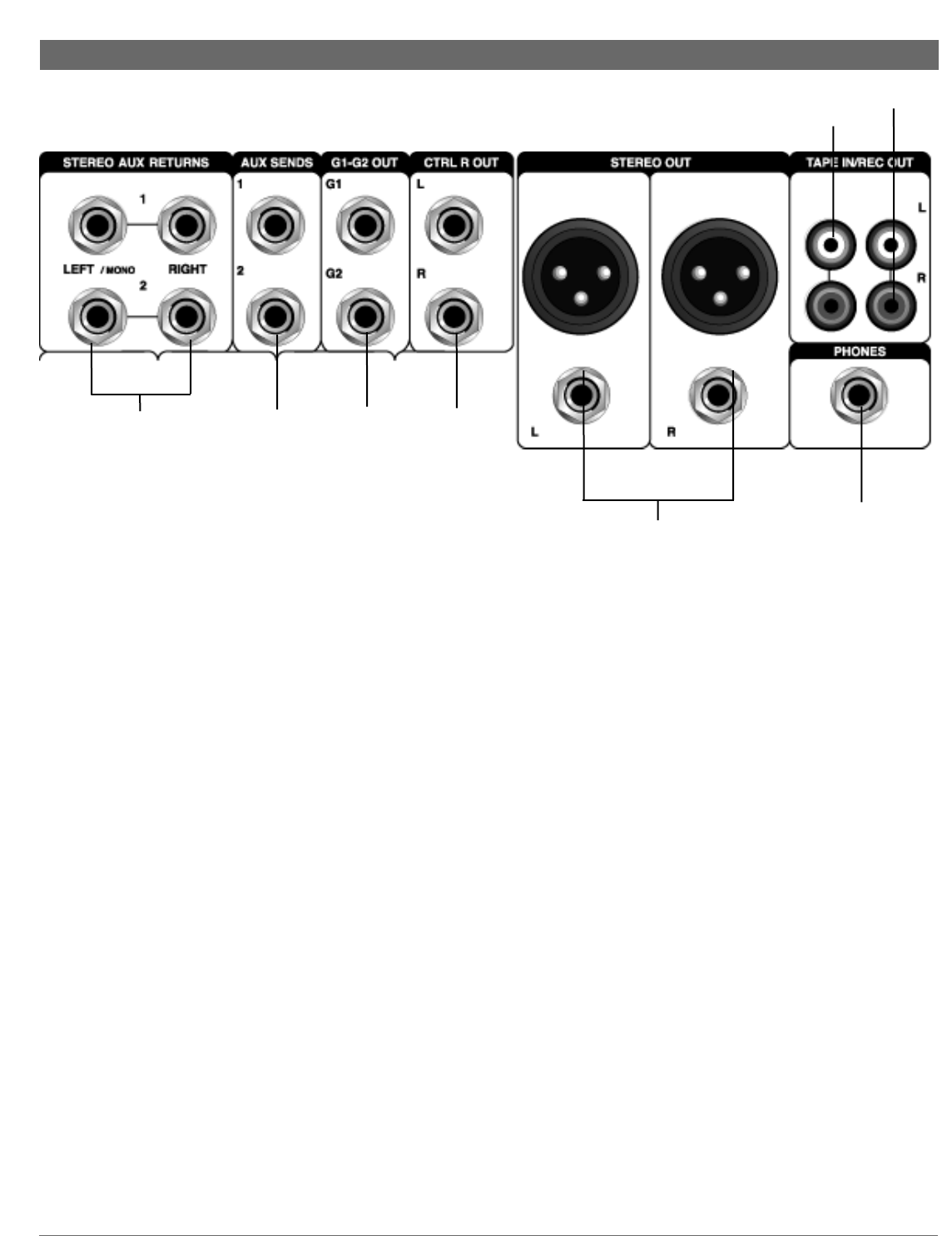
3. MASTER SECTION
a. AUX Sends/Returns Function and Operation
(16) STEREO AUX RETURNS (LEFT/MONO, RIGHT)
(32) AUX 1,2 MASTER SEND CONTROLS
(36) AUX 1,2 RETURN CONTROLS
(37) AUX RETURN BALANCE CONTROLS
(38) L-R AUX RETURN ASSIGN SWITCH
(39) G1-2 AUX RETURN ASSIGN SWITCH
The AUX Return jacks are the mono or stereo returns for AUX
1 and 2. If you connect a signal to the Left/Mono Return jack
only, the AUX Return will operate in mono and the signal will
be routed to the respective Aux Return Control (36) and
then mixed into the left and right Main Mix Stereo Outputs
(20) and/or G1-G2 Outputs (18), depending on whether you
selected either or both outputs with the L-R (38) or G1-2 (39)
AUX Return Assign switches. The separate left and right
return jacks are provided for use with stereo signals such as
those from the output of a stereo effects processor. The left
and right return signals will be routed to the return level con-
trols (36) and mixed into the left and right Stereo (20) or G1-
G2 (18) Outputs separately [depending on the outputs select-
ed with the AUX Return Assign switches (38,39)], while
maintaining stereo separation. Use the AUX Return Balance
Controls (37) to adjust the balance of the AUX Return signal.
For example, if these knobs are turned all the way to the left,
the signal will be sent only to the L and/or G1 bus, and turned
all they way right, only to the R and/or G2 bus, and in the
center equally to both the L, R, and/or G1, G2 buses [again
depending on the outputs selected with the AUX Return
Assign switches (38,39)]. The Aux Returns are multi-func-
tional. They may be used for returning the outputs of effect
units, as Tape Returns from a multi-track recorder, or as extra
instrument inputs, especially if your MIDI keyboard or rack
supplies a pre-mixed stereo signal.
Certain stereo effects produce a perceived imbalance
between the left and right channel levels. To correct for this
you will have to bring your stereo effect back on a stereo
channel, which has a Balance control (15). When applying
short left and right delays, the shortest one will always seem
loudest. When pitch shifting up and down in wide stereo to
thicken a sound, the signal shifted upwards will seem louder
than one that goes down. In both cases use the Balance con-
trol to compensate. When performing any stereo imaging
exercise, don’t just rely on the control room monitors. Get a
pair of headphones and listen in stereo and in reverse stereo,
just in case you have any significant hearing discrepancies.
Sometimes you might want to narrow the stereo width of a
reverb field. To do this you will have to come back on two
mono channels to get independent pan for the left and right
signals.
(17) AUX SENDS
The Aux Send 1 and 2 jacks are the outputs for the signals
sent from the channel Aux controls (6). They are 1/4" unbal-
anced phone jacks wired: Tip = positive (+), Sleeve = ground.
AUX 1 is pre-fader and AUX 2 is post-fader. These signals
can be sent to the input of an effects processor, multi-track
recorder, or used for any other line-level auxiliary purpose.
Master Aux Send levels are adjusted by the Aux Master
Send controls (32).
CONTROLS AND CONNECTIONS
(16)
(17) (18)
(20)
(19)
(23)
(21)
(22)
9



